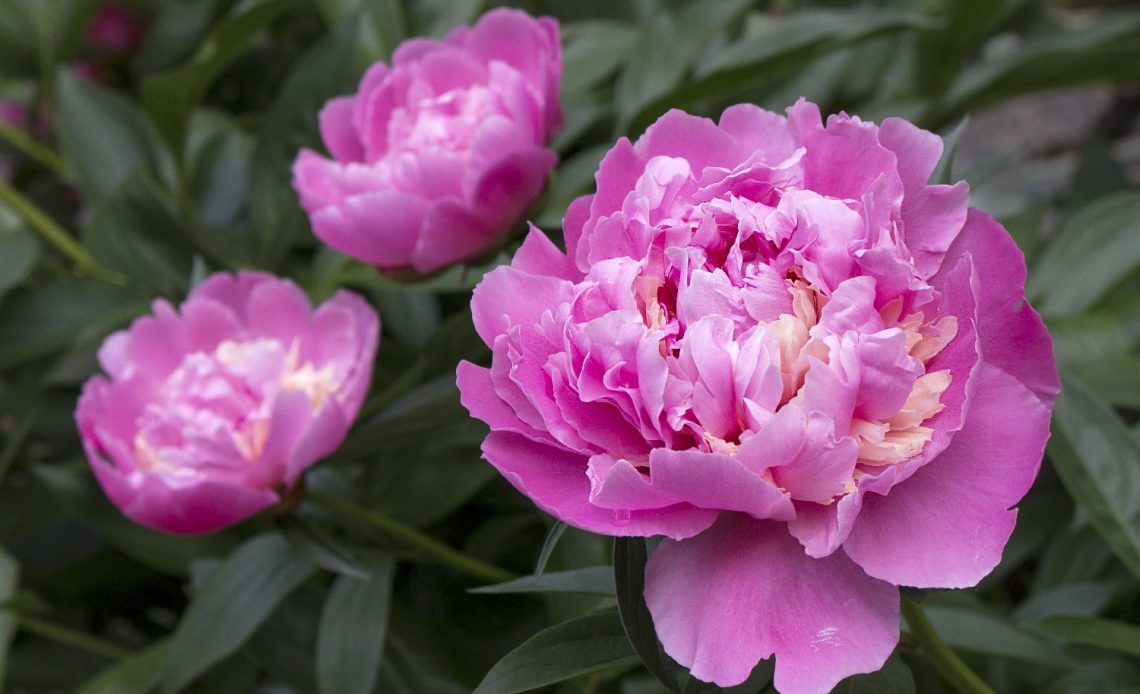

We’re here to help! Wild Yards is a completely free website that is 100% dedicated to helping you create a wildlife-friendly, sustainable yard. Read more
WildYards is reader-supported. When you buy a product through a link on our site, we may earn a comission. Every product is independently selected by our (obsessive) editors and our reviews are unbiased and objective. Read more about our mission or our privacy policy.
Peonies are some of the brightest, most beautiful flowers you can expect to bloom across your garden. But have you ever stopped to smell these plants before? Most of us know the scent of a rose, for example – but what do peonies smell like?
Peonies generally smell very sweet, though the fragrance can vary depending on the variety you grow. For example, you can expect some peonies to smell more like oranges and lemons than others.
What should peonies smell like?
You can generally expect a peony to produce a highly refreshing smell, one that’s similar to the typical garden rose. Otherwise, some peonies produce scents that are akin to that of citrus fruit, adding a delicate, tropical smell to most gardens.
What’s interesting about these flowers is that they can not only smell differently depending on type, but may also vary in fragrance strength. Many people grow highly fragrant peonies outdoors, for example, but prefer to pot up lighter-smelling flowers to bring inside.
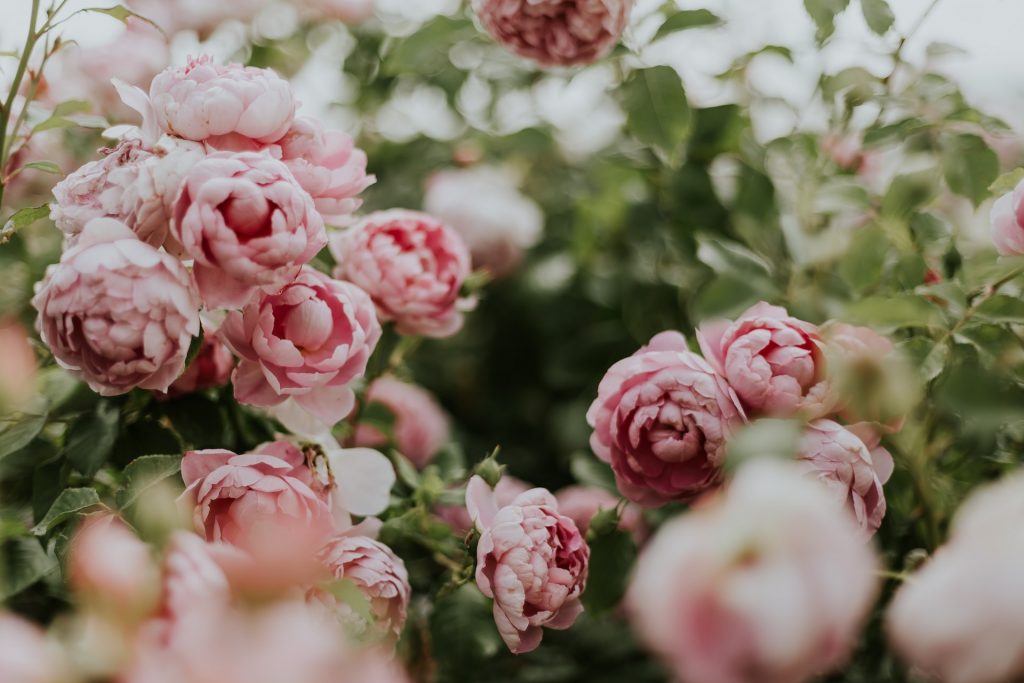
What affects the smell of a peony?
Peony scents differ not only depending on plant genetics but also on flower structure. Double-flowered peonies, for example, are those that are more densely packed than the average. Anecdotal evidence suggests that, regardless of the type of peony you wish to grow, the double-flowered variety is always likely to smell stronger than a single-flowered alternative.
Do also consider that peonies can change fragrance – or, at least fragrance strength – depending on the time of day you smell them. For example, peonies may smell stronger in early light than towards the end of a day. This means any pollinators wishing to make the most of the nectar will likely catch the heady bouquet shortly after dawn – and rarely heading into the evening.
Weather, too, can greatly impact how peonies smell and the strength of their fragrance. A strong wind is likely to not only propel pollen from the plant across your garden, but also its scent. Your peonies may not seem so fragrant on a mild or sunny day with very low wind speed.
With weather impacts come temperature impacts. Early morning can bring strong sunlight bearing down upon peonies, which some believe helps to amplify the smell. Some studies, conversely, suggest the opposite.
It’s also believed that by the end of the day, any oil produced by the flower may have evaporated in the sunshine, therefore causing it to produce less of a fragrance. This science may apply to many flowers – but it is highly noticeable in the peony.
Some gardeners’ evidence also suggests that specific peony colors can dictate how strongly they smell. For example, many agree that a pink or white peony is likely to produce a heavier fragrance than most. Your own experience may vary!
Judging the fragrance and strength of a plant’s floral bouquet is a difficult science. What’s more, some people may be divided over what they feel is a delicate-smelling peony, and what isn’t. What we do know for sure, ultimately, is that the peony is one of the strongest-smelling flowers you can grow.
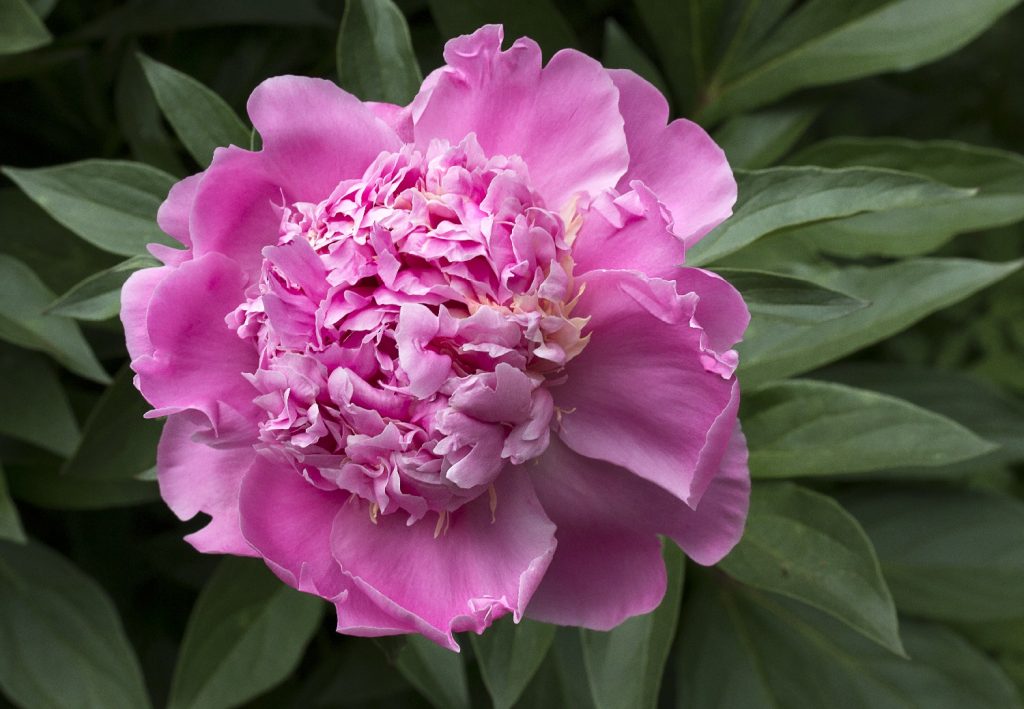
When will my peonies start smelling?
Peonies won’t start producing fragrance until after they’ve bloomed, though they will produce nectar to attract pollinators slightly before their petals open up and produce a scent. This plant will require lots of patience to grow and cultivate – it can take up to three years for a single peony to start producing flowers.
There’s a definite upside to this – as long as you look after your peonies well, they can live for decades, even as long as 50 years. Some studies even suggest peonies can live for up to a century!
Do people like the smell of peonies?
Although the strength of peony fragrance may vary from smeller to smeller, it’s one of the most popular scents born out of the back garden. A cursory glance at perfume stores will likely provide you with a choice of peony-scented sprays and cologne, for example. It’s also become highly popular in aromatherapy, emerging as a leading candle scent through developers such as L’Occitane.
In many cases, the peony fragrances you can buy for your skin, and those you can spray around your home, will be delicately blended with other sweet-smelling flowers. For example, you may find that a peony fragrance is boosted slightly with a touch of jasmine or lavender.
Bringing peonies indoors, as briefly mentioned, can be a fine art. Double-flowered peonies tend to smell the sweetest yet produce very strong fragrances. A single-flowered peony is likely to smell less strongly outside but may add an intoxicating scent to your room(s) if you place them in a vase.
This explains why many people buy peony-scented (or peony-inspired) products for indoor use, instead of the ‘real thing’. Some gardeners even suggest carefully clipping petals from healthy peonies to scatter piecemeal inside to add a slight fragrance. One thing several people agree on, to that end, is that peony plants are generally best to leave growing in the garden.
What do different peonies smell like?
While most peonies smell strong, notes in their fragrance will vary from plant to plant. Let’s take a look at a few types and the differences in the scent you may expect.
Bartzella Peonies
While many peonies will smell fresh and rosy, the yellow Bartzella peony carries a surprising scent that matches its hue. This large-blooming peony produces a highly powerful lemon scent, helped by its double flower structure. It’s similar to the Prairie Charm peony in looks, but the citrus bursts you’ll smell are instantly recognizable.
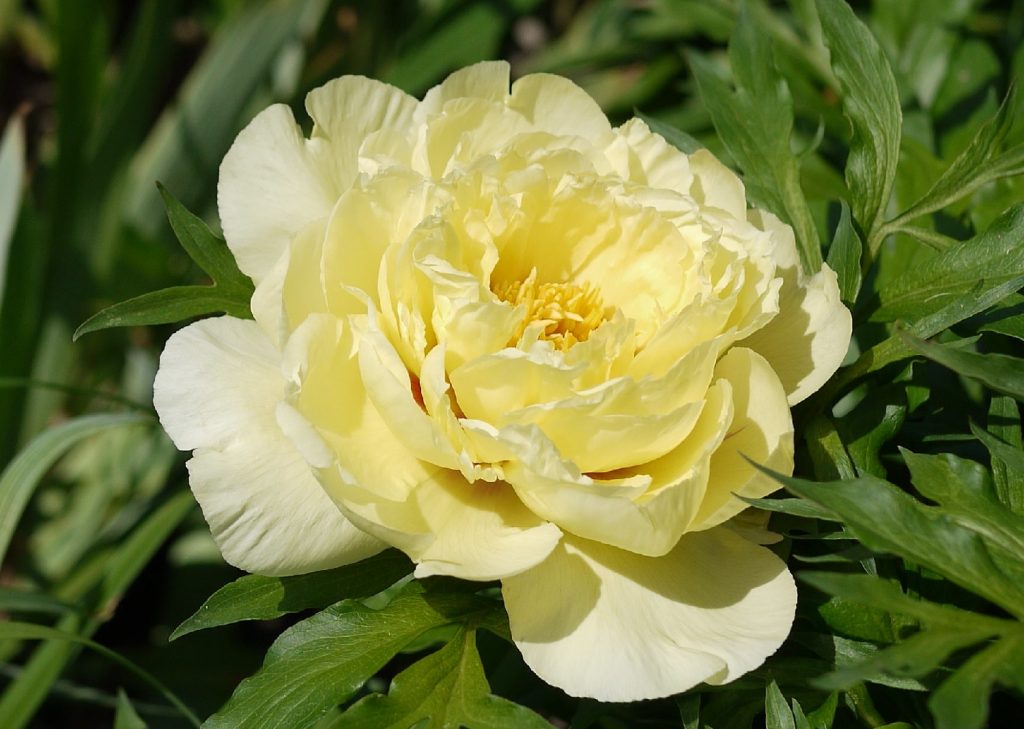
Do Tell Peonies
The Do Tell peony is a hybrid flower cultivated by gardeners over the years to provide a delicate splash of pink and yellow. This peony isn’t the heaviest on fragrance, though its light, rosy scent is well-loved by active gardeners. You’ll normally need to sniff this peony closely to get the best of its scent, though planting a large amount will typically allow the fragrance to travel further.
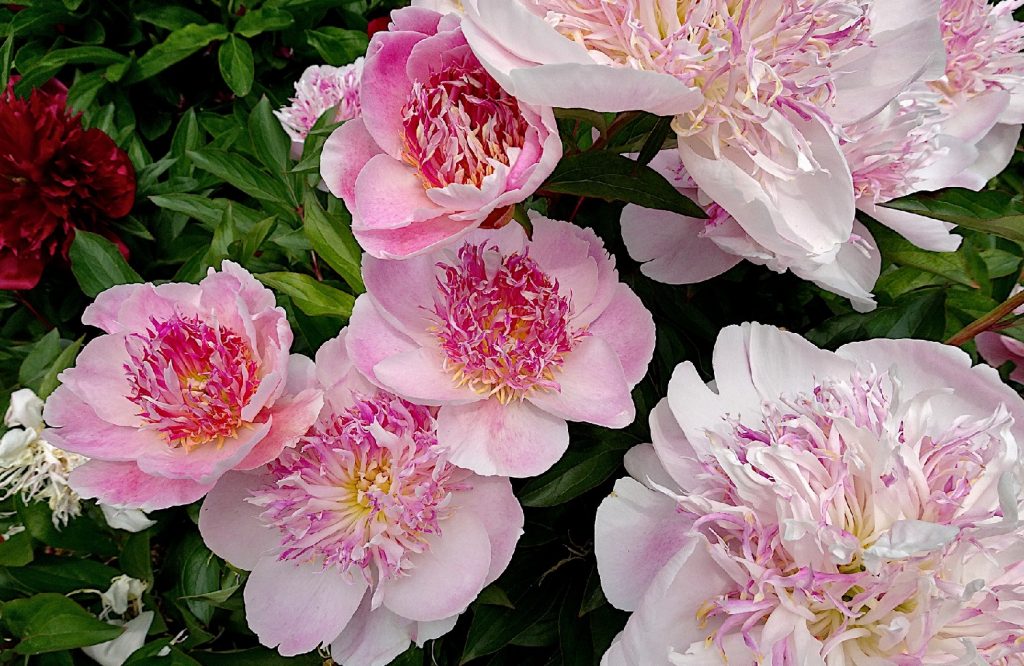
Pillow Talk Peonies
The Pillow Talk peony is another custom-cultivated specimen that adds a dash of pink to the garden. This is a fluffy, highly-packed flower that, despite its layers of petals, usually only provides a delicate note or two to your garden’s overall fragrance. It’s very sweet and rose-like to smell, and much like the Do Tell peony, you may need to sniff this flower up close to appreciate it.
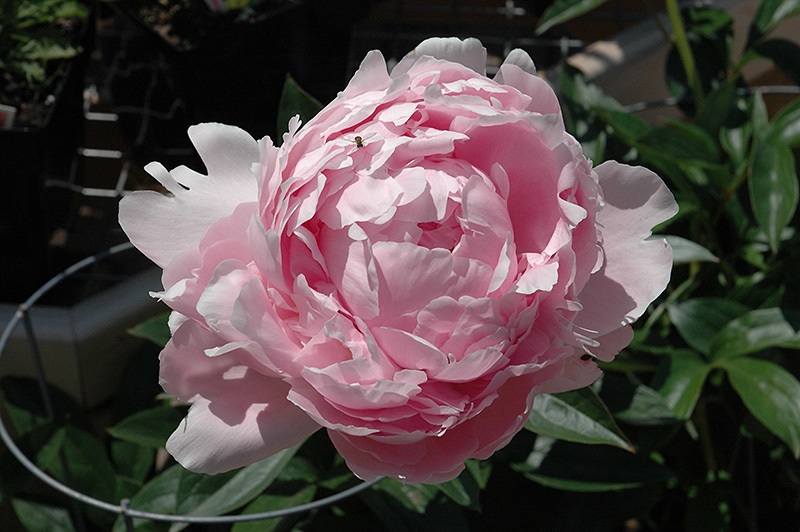
Big Ben Peonies
Big Ben peonies are large in name and large in scent. It’s a bold, dramatic flower that grows in shades of pink to dark red, providing densely packed double petals. The smell of a Big Ben is extremely fragrant – and at the same time, refreshingly sweet. This peony grows well in brighter months, and you normally won’t need more than a small bunch to add fragrance to your yard.
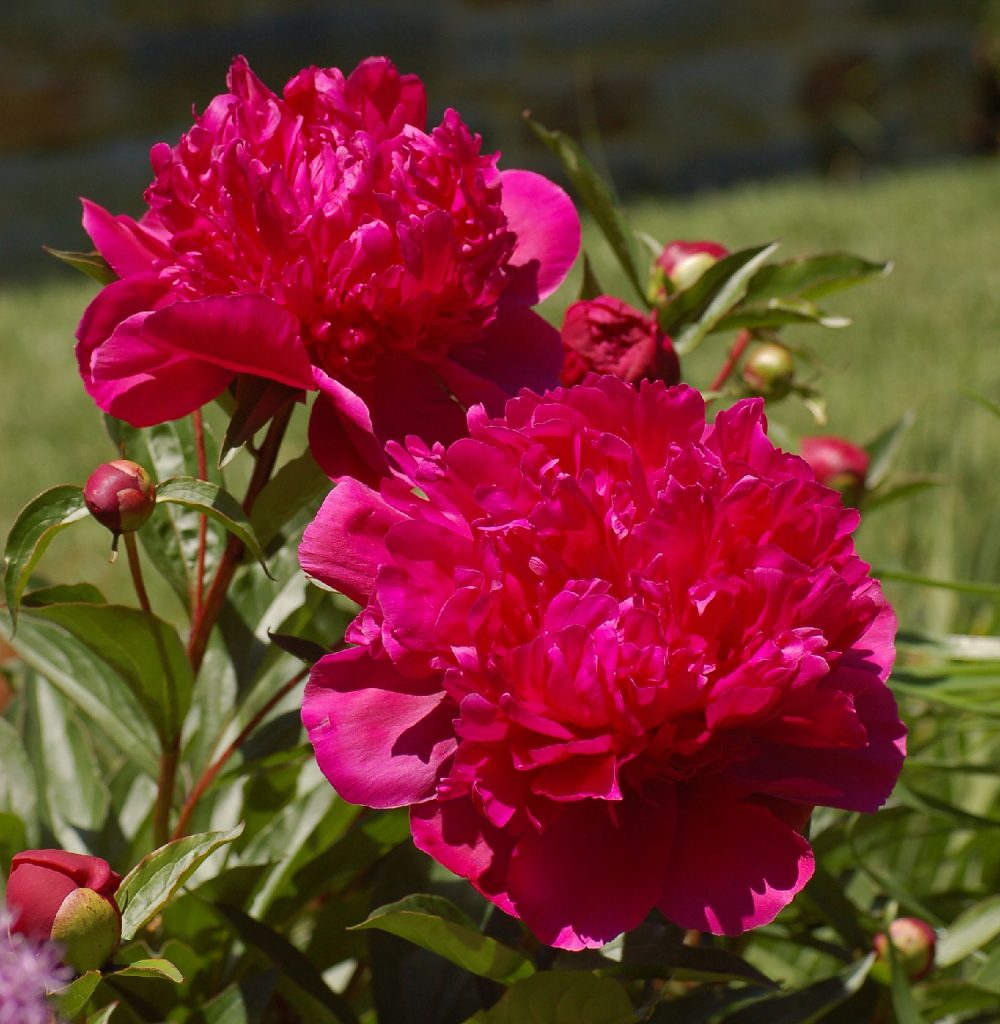
Rock’s Peonies
The Rock’s peony is one with an even stronger reputation for heavy scents than the Big Ben variety. This tree peony boasts gentle, white petals with stunning yellow and black middles, appearing highly attractive to many different pollinators. The smell of a Rock’s peony is strong, spicy, and difficult to balance with many other flowers. One alone could overpower a group of sweet-smelling blooms – so be careful where you plant it!
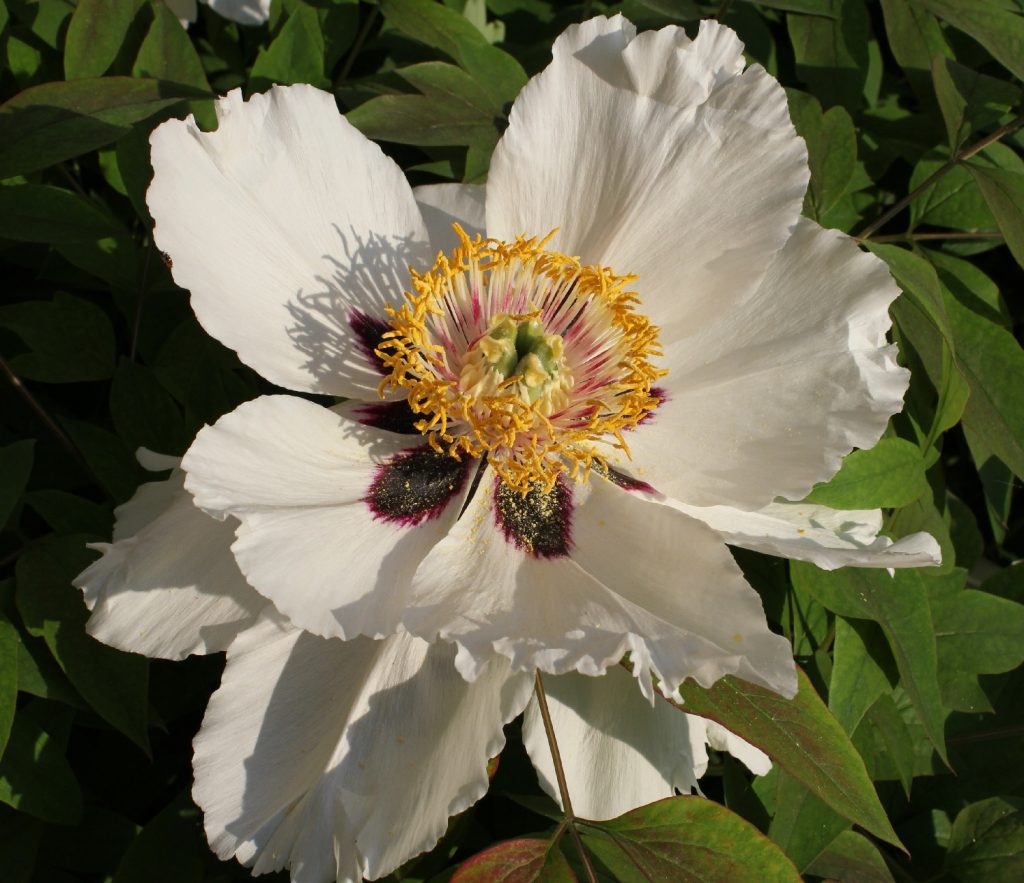
Duchesse de Nemours Peonies
The Duchesse de Nemours peony is a flower that’s been cultivated for centuries, and it’s one of the most eye-catching, fluffiest blooms of its species. This flower offers a sharp burst of white for the eyes, and in terms of fragrance, it’s crisp and fresh – a little like mild jasmine. This is a highly sought-after peony thanks to its look and scent, and similarly, thanks to its commanding aesthetic.
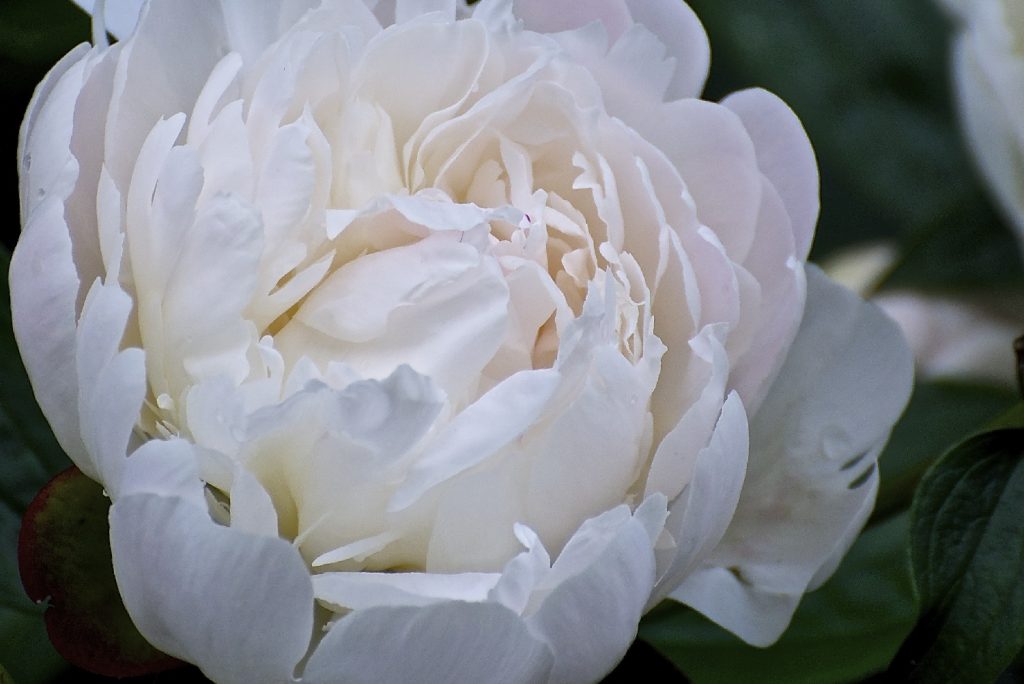
Do animals like the smell of peonies?
Many pollinators love the smell of peonies – particularly bees, who find the extrafloral nectaries of a peony tricky to ignore. This is a popular pollinator plant as it gives off an incredible fragrance and delivers on its promise to provide tons of nectar.
Peonies are also great for attracting hummingbirds and welcoming butterflies to your garden. It’s not just the scents of these flowers that appeal to these creatures, as the shapes are ideal for both pollinators to feed on. Hummingbirds prefer tubular-shaped blooms where possible, and butterflies prefer flat flowers they can land upon while feeding. Peonies, thankfully, straddle the line between the two extremes.
Peonies tend to be highly popular with various garden pests and a swathe of different insects. For example, it’s likely to fall prey to various garden visitors such as ants and mites. As always, if you’re keen to avoid attracting these minibeasts to your garden, be sure to use a natural deterrent or to attract insect-feeding birds to your yard (such as hummingbirds or woodpeckers).
Should I grow peonies in my garden?
Peonies are fantastic flowers to grow in your garden regardless of the scent (or its strength)! They are colorful, long-living, and great at bringing pollinators back to your yard year after year.
These are patience-testing blooms that, while requiring a little waiting time, will reward you handsomely for decades to come. Regardless of their difference in fragrance, a plot of well-maintained peonies will keep your yard smelling sweet and appealing.
